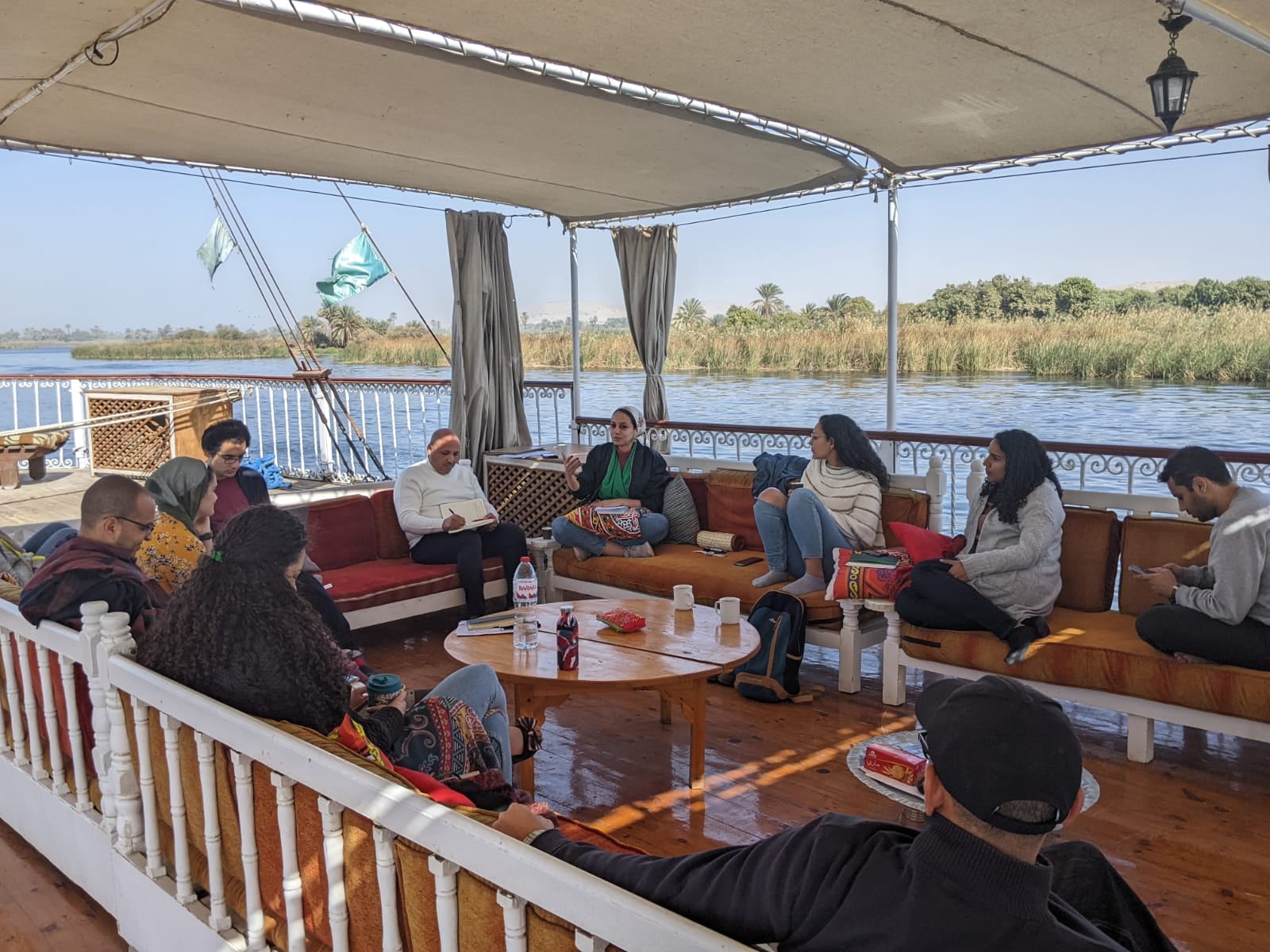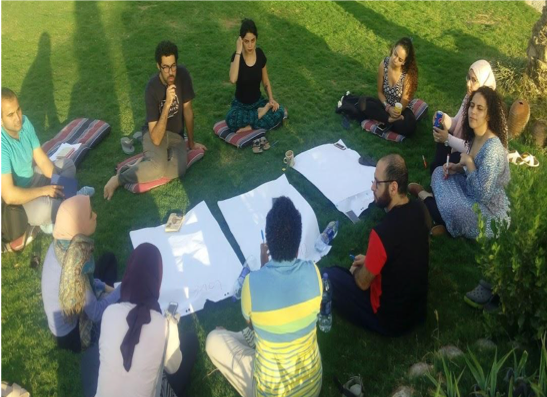Date: 20 April 2024
Venue: Cairo, Egypt
Collective Routes is delighted to announce its inaugural ‘Knowledge Fair’ on organizational resilience in the arts and culture sector, to be held on April 20th, 2024, in Cairo, with the possibility of online participation.
Knowledge Fair, is one of the methods of creating a Community of Practice (CoP), which is considered one of the forms of collaborative learning among people. “Communities of practice are formed by people who engage in the process of collective learning in a shared domain of human endeavour”.
Organizational resilience, as defined by Ortiz-de-Mandojana and Bansal (2015) and Duchek (2020), is the ability of an organization to anticipate and cope with unexpected changes and disruptions to its environment. This event aims to bring together development practitioners, researchers, artists, social entrepreneurs, activists, and enthusiasts alike to learn, co-create, and share knowledge on thriving and working better within dynamic contexts.
The Knowledge Fair is collaboratively designed through the contributions of the participants who share different modalities of knowing and doing, such as practical tools and methods, research and knowledge products, and on-ground practices and cases.
Contributions can take four forms:
- Open questions and conversations| that tap into the collective wisdom of the participants
- Practical knowledge | Sharing a tool or a method
- Reflective knowledge | Sharing a practice or experience [Fulfilled and unfulfilled experiences are both welcomed]
- Theoretical knowledge | Sharing research and knowledge products [Completed and in-progress contributions are both welcomed]
Contributions can be under one of the following themes:
a) Leadership and culture
- How do you cultivate collaborative leadership in your organization?
- How do you engage your colleagues and co-workers?
- To what extent are you satisfied with how decisions are taken in your organization?
- How do you enable innovative and creative ideas to emerge within your organization?
b) Relationships and resources
- How do you minimize barriers within your organization to facilitate positive relationships among your colleagues and co-workers?
- How do you support learning and knowledge transfer in your organization?
- How do you approach partners and sustain your partnerships? (especially with the government and private sector)
- How do you best utilize your internal resources and mobilize external ones?
c) Change readiness
- How do you develop alignment and unity of purpose among your colleagues and co-workers?
- What do you do to plan for the future?
- What helps your organization to adapt to ongoing changes in your field and the Egyptian context?
- How have you adapted your working model and methods in response to the emerging changes? (examples and stories)
We invite you to engage with the Knowledge Fair in two ways. You can choose to be a participant, where you can attend the event and take part in the different sessions, or you can choose to be a contributor, where you can share your valuable practices and stories, contributing to a collective exploration of organizational resilience in the arts and culture.
We welcome contributions from Egypt, particularly from individuals and organizations outside Cairo. The fair participants will collaboratively evaluate the received contributions, and the fair agenda will be co-designed according to their selection of which contributions interest them.
Accepted contributions will be featured in an online publication in English and Arabic, ensuring broader accessibility and impact.
- Submit Contribution: If you want to participate in and submit a contribution to the Knowledge Fair, please fill out this form: https://forms.gle/5cxoor1vXRAbdNZ18
- Participate Only: If you want to participate in the Knowledge Fair (without submitting a contribution), please fill out this form: https://forms.gle/SniCqnRuweyE7AtG9
The deadline for applying is Monday, April 1st, 2024. If you have any questions, please write to menna@collectiveroutes.org
This call is part of the Tandem Amwaj programme, a civil society-led project co-designed and implemented by 4 partner organisations (Tandem programme alumni) coordinated by zusa in the MENA region working on creating safe and creative environments for independent narrative discourses. By supporting culture-led engagement actions and actors, this program aims at promoting civil society participation in local development practices, growing space for different forms of expression and a sense of belonging to be performed despite the pressuring contexts (political and economic) across Lebanon, Egypt, Morocco, and Tunisia. To know more: https://www.tandemforculture.org/programmes/tandem-amwaj/
MennaTullah Reda Atta Mohamed Yassein Shaimaa Atef





